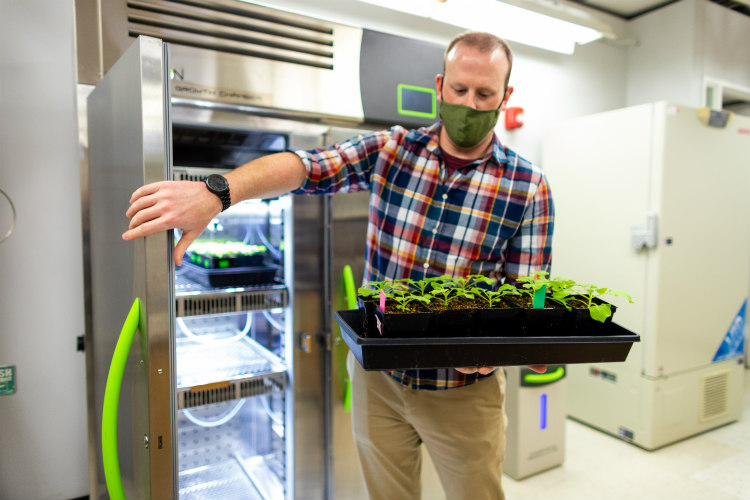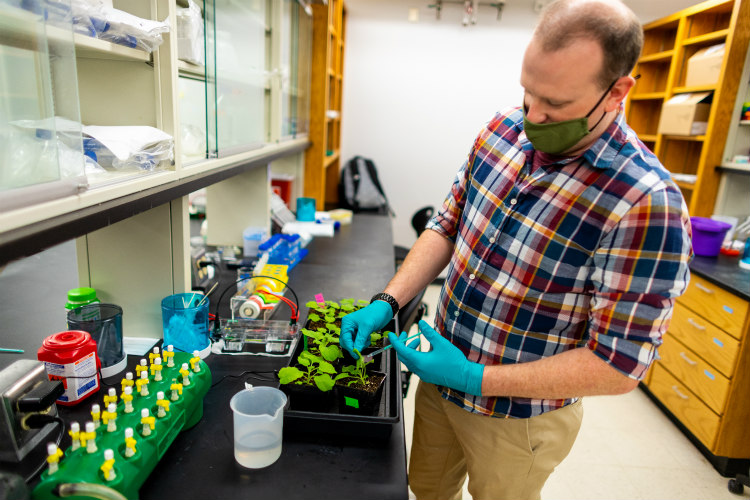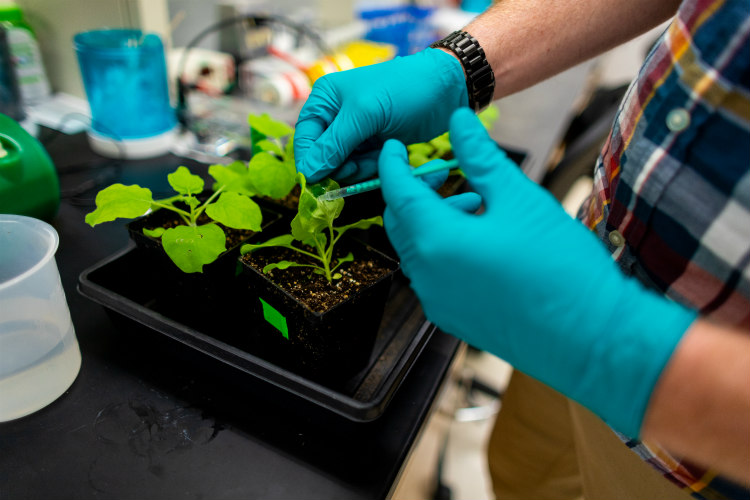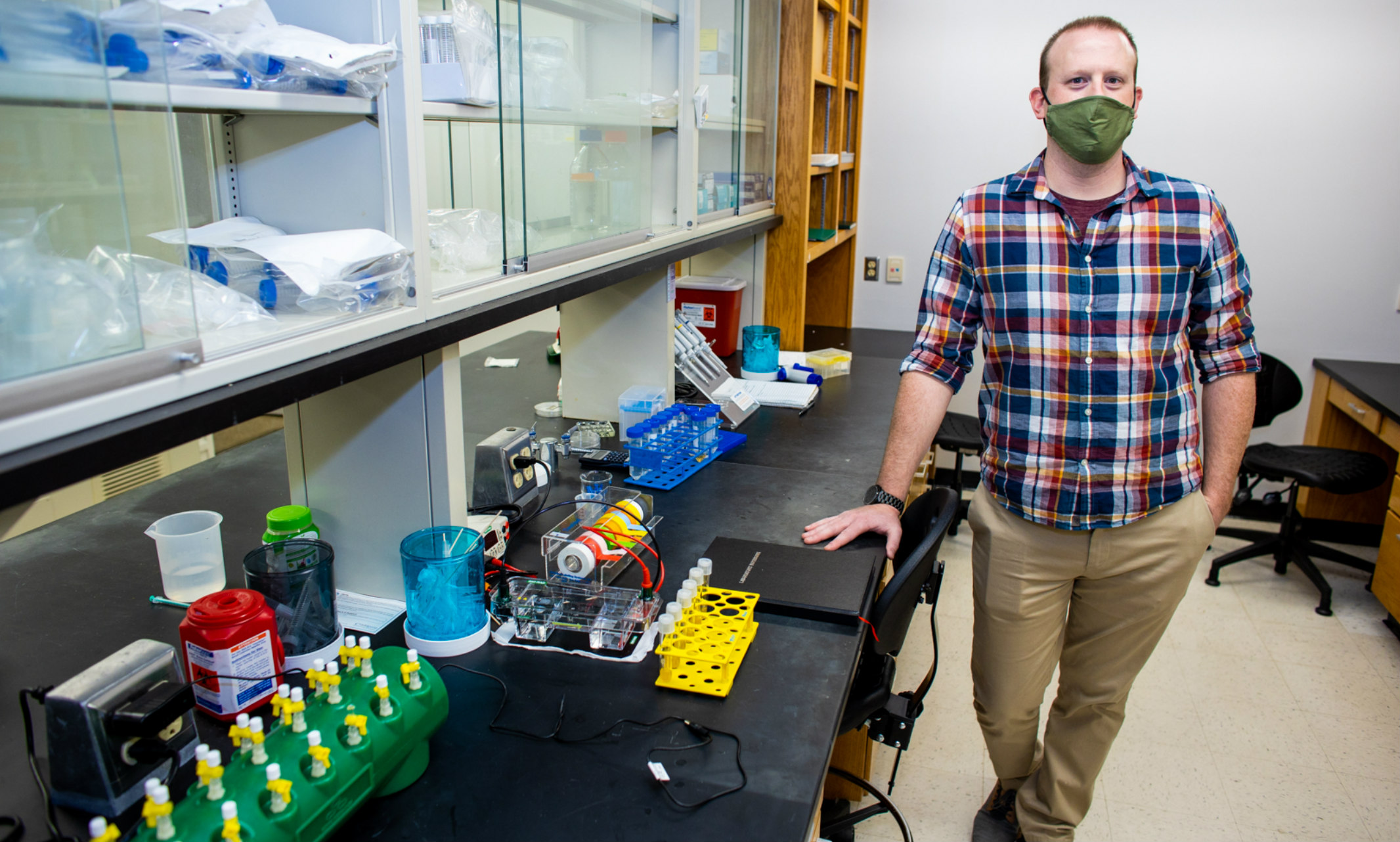Jared May joined the School of Biological and Chemical Sciences as Kansas City and the rest of the world was beginning to shut down because of COVID-19. While May adjusted to the move from Washington D.C., he pursued research into how plant viruses evade detection in host cells, and how it relates to human virus pathogenesis.
Your research focuses on how RNA plant viruses are able to circumvent antiviral pathways of potential host cells. What led you to this specialty?
Viruses have been infecting every lifeform since the beginning of time. This tug of war between a host and a virus has been like a molecular arms race. They’re always fighting trying to get the upper hand. That’s one of the things I find remarkable about viruses -- even though they infect such diverse organisms, they are closely related. They share so much in common that what you find in one virus many times will translate to other viruses.

Does this type of research lend itself to human viruses? COVID-19 for example?
My research focuses on RNA metabolism pathways that inhibit plant virus replication. Interestingly, these pathways are present in animals and are known to target coronaviruses like COVID-19. By determining how plant viruses have evolved to survive in their host cells, we will gain a better understanding of how viruses like COVID-19 must adapt to survive in human cells. This work has the potential to uncover virus features that could be targeted by vaccines or antiviral therapeutics.
"Viruses have been infecting every animal since the beginning of time. This tug of war between a host and a virus has been like a molecular arms race."
Some people did not absorb the significance of the spread of COVID-19 immediately. How did you react when you become aware of the virus’s potential?
My first concern was that based on the virology conferences that I’d attended, I knew that studying coronaviruses wasn’t extremely popular. The first major outbreak was SARS and there haven’t been new cases since around 2003. So, the interest in the field had died down and shifted towards more recent outbreaks like Ebola. Because of that, there wasn’t a lot of ongoing research.

How does the current focus on coronaviruses relate to your work?
Both coronaviruses and plant viruses are targeted by their host cells using shared pathways. So, I’m trying to leverage what I’ve already found in plant viruses and see if this this novel coronavirus exploits similar attributes to fight the human antiviral response.
What led you to this specialty?
In graduate school I became interested in viruses and infectious disease. I studied human noroviruses that often cause outbreaks on cruise ships. But there are unique benefits in working with plants. For one, the cost is significantly cheaper.

It’s a difficult time to move to a new city. How are you adjusting? Have you had time to explore?
Yes, it is unfortunate timing! But my wife and I just had our first baby. She’s a year old, so sometimes it’s easier to stay home!

